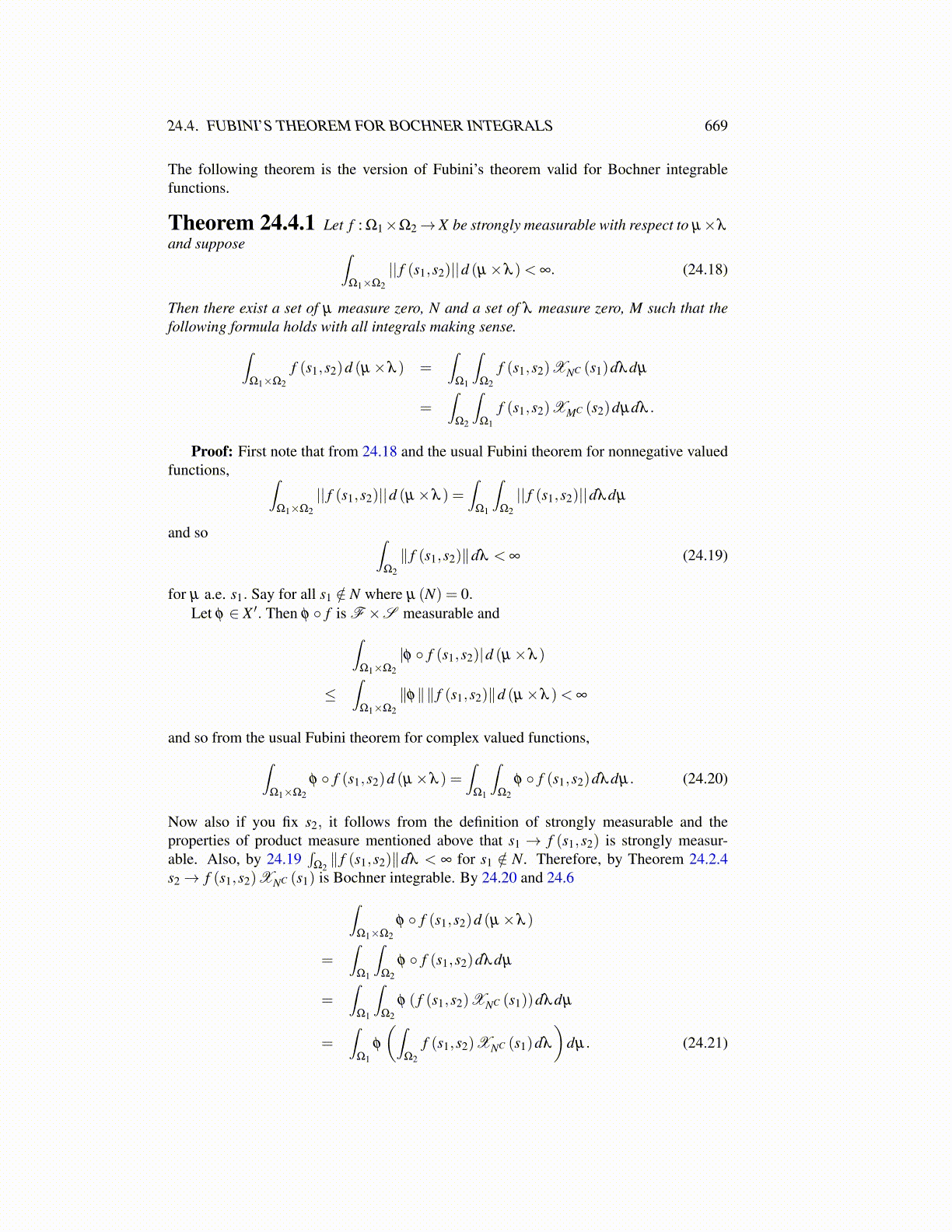
24.4. FUBINI’S THEOREM FOR BOCHNER INTEGRALS 669
The following theorem is the version of Fubini’s theorem valid for Bochner integrablefunctions.
Theorem 24.4.1 Let f : Ω1×Ω2→ X be strongly measurable with respect to µ×λ
and suppose ∫Ω1×Ω2
|| f (s1,s2)||d (µ×λ )< ∞. (24.18)
Then there exist a set of µ measure zero, N and a set of λ measure zero, M such that thefollowing formula holds with all integrals making sense.∫
Ω1×Ω2
f (s1,s2)d (µ×λ ) =∫
Ω1
∫Ω2
f (s1,s2)XNC (s1)dλdµ
=∫
Ω2
∫Ω1
f (s1,s2)XMC (s2)dµdλ .
Proof: First note that from 24.18 and the usual Fubini theorem for nonnegative valuedfunctions, ∫
Ω1×Ω2
|| f (s1,s2)||d (µ×λ ) =∫
Ω1
∫Ω2
|| f (s1,s2)||dλdµ
and so ∫Ω2
∥ f (s1,s2)∥dλ < ∞ (24.19)
for µ a.e. s1. Say for all s1 /∈ N where µ (N) = 0.Let φ ∈ X ′. Then φ ◦ f is F ×S measurable and∫
Ω1×Ω2
|φ ◦ f (s1,s2)|d (µ×λ )
≤∫
Ω1×Ω2
∥φ∥∥ f (s1,s2)∥d (µ×λ )< ∞
and so from the usual Fubini theorem for complex valued functions,∫Ω1×Ω2
φ ◦ f (s1,s2)d (µ×λ ) =∫
Ω1
∫Ω2
φ ◦ f (s1,s2)dλdµ. (24.20)
Now also if you fix s2, it follows from the definition of strongly measurable and theproperties of product measure mentioned above that s1 → f (s1,s2) is strongly measur-able. Also, by 24.19
∫Ω2∥ f (s1,s2)∥dλ < ∞ for s1 /∈ N. Therefore, by Theorem 24.2.4
s2→ f (s1,s2)XNC (s1) is Bochner integrable. By 24.20 and 24.6∫Ω1×Ω2
φ ◦ f (s1,s2)d (µ×λ )
=∫
Ω1
∫Ω2
φ ◦ f (s1,s2)dλdµ
=∫
Ω1
∫Ω2
φ ( f (s1,s2)XNC (s1))dλdµ
=∫
Ω1
φ
(∫Ω2
f (s1,s2)XNC (s1)dλ
)dµ. (24.21)